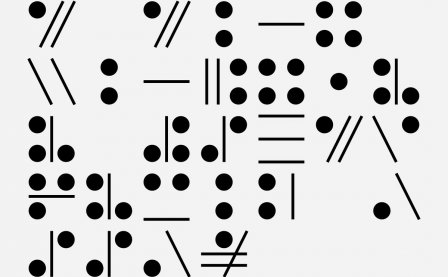Some people are simply natural communicators. Sun Araw, a.k.a. Cameron Stallones, is one of those gifted people. Through his music, his art, and his words, you get the sense that he is always transmitting precisely what he wants you to understand. He would call it “speaking the Word,” the mother tongue that humanity shared before Babel and that will be shared once again in the future. But truth, unfettered and absolute, isn’t always so easily understood, especially when we are all speaking our individual languages. You have to feel the truth, the tendencies and direction of its vespers. Fully understanding Stallones’ seemingly dense interviews and pastiche aesthetic requires some feeling out, but once you get the hang of it, you will be able to ride it forever.
On Patrol is Sun Araw’s densest yet most digestible effort to date. With over 80 minutes of low-slung tropical psych-funk, the record is drenched in a thick humidity, but despite the length, the jams here are forever buoyant, carried on by Stallones’ admiration and understanding of long-take filmmaking. In an interview with Tiny Mix Tapes last year, Stallones discussed how “that sort of camera movement through space, the slowly shifting perspective” had become a big part of his music. The lengthy songs that make up On Patrol maintain a constant but fluid stomp, elements phasing in and out, trading dance steps with each other in elaborate, improvised rituals. It’s like watching the jungle pass by from the window of a train: greens, reds, yellows, and purples appearing as a blur that you understand as the separate elements of the same living scene.
“Conga Mind” is one of the album’s longest tracks and its true centerpiece. Like Marlowe going deeper into the bush, it’s the meeting of reality and fiction that Stallones has described as being the central motif of On Patrol. Whereas his previous standout full-length, Heavy Deeds, was meant to channel a more idealized, inward-facing sonic landscape, On Patrol is where “those energies meet the real world.” Pensive farfisa organ and meditative guitar stabs groove in primal unison with conga beats and Stallones’ reverb-drenched vocal meditations. Whereas previous album covers (made by Stallones) have pictured real but imagined images (canopies, desert scenes, re-appropriated R&B stars of the past), the cover of On Patrol shows a bombed-out future-past bridge and the schematics for a patrol car, perhaps the same cruiser from CHiPs. It’s the meeting of the imagined and the visceral in a much more tactile reality.
In interviews, Stallones has a penchant for using his album or song titles as action verbs or as a way of describing a certain modus operandi. On Patrol, therefore, signals a more active listen than Heavy Deeds, outrospection versus introspection. Many of the song titles can be seen from the car window of a beat-up, faded seafoam green jalopy rumbling through the streets of Lagos, Kingston, or some other balmy urban, tropical locale. “The Stakeout” is a weighty funk number, breathing as heavily as a humid, tropical metropolis at night. “Deep Cover” is even heavier, almost sounding inside-out, bombed-out bass and vocal warblings trading blows with lurching organ and guitar. If the rest of the tracks on the album project of hot, heavy, yet acceptable paranoia, “High Slide” is a release; it’s the moment that the sun appears like a savior after an uncomfortable, surreal night of up-close urban exploration.
On Patrol is the document of a true visionary at the height of his powers. Like all great works, of literature, music, or otherwise, it provides a jumping-off point for artists, a creative nexus bubbling like a wellspring of fertile ideas. As a listening experience, whether passive or active, On Patrol functions as an essential element to one’s aural environment, a mind psalm to those with eyes to see and ears to hear the true “Word” of what Stallones is capable of communicating. It’s an undeniably powerful piece of work, one that can be enjoyed by your burn-out uncle, chin-stroking Bard students, or time-traveling Afrobeatniks. It transcends time and space by creating its own sonic world of perfect, immovable, timeless music.
More about: Sun Araw




